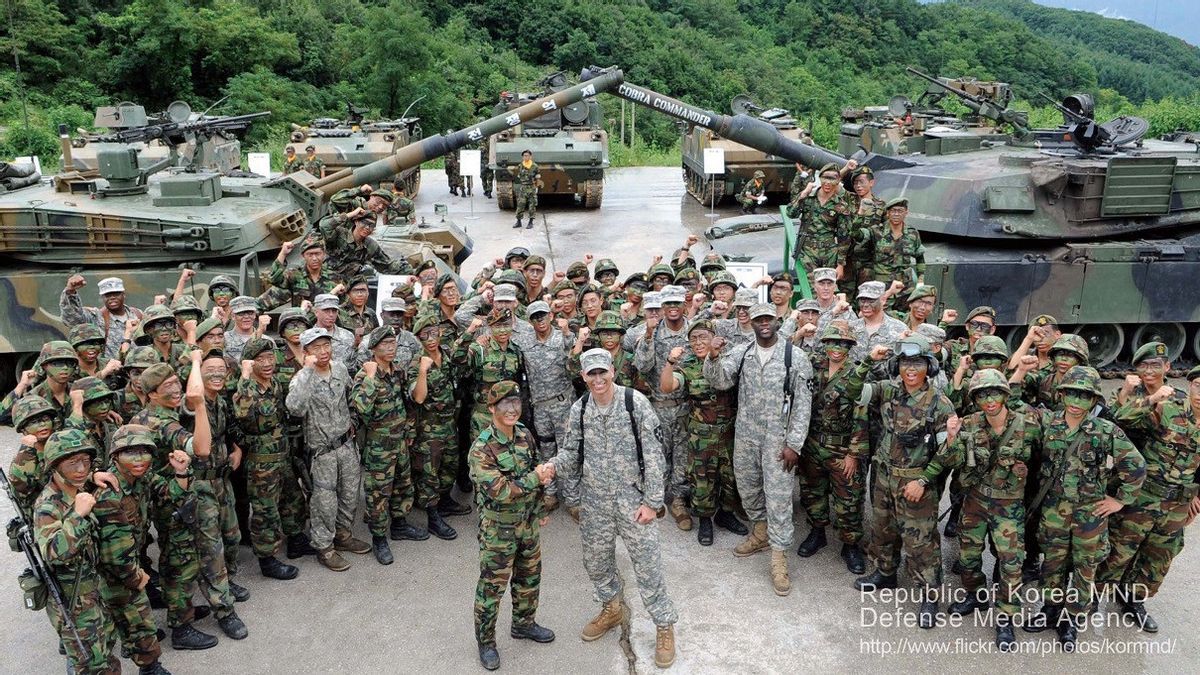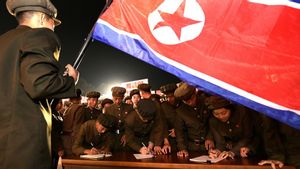JAKARTA - The defense ministers of the United States and South Korea agreed to expand military exercises, step up nuclear prevention plans to counter North Korea's arms development and prevent war.
US Secretary of Defense Lloyd Austin is in Seoul for talks, as Washington seeks to reassure a key Asian ally of its nuclear commitment amid growing threats from North Korea.
Secretary Austin met with South Korean Defense Minister Lee Jong-sup, following their annual security talks in Washington in November.
"To realize peace through power on the Korean peninsula, we promise to expand scale and increase levels of joint training and training," Minister Lee told a joint news conference.
Secretary Austin said his trip was aimed at deepening cooperation to address common security challenges, reaffirming US commitments to South Korea as tensions and provocations escalate.
"The United States stands firm in its expanded prevention commitments that include various US defense capabilities, including our conventional, nuclear and missile defense capabilities," he told the conference.
It was great seeing my 🇰🇷 ROK counterpart, Minister Lee Jong-Sup to discuss our common commitment to security in the region & around the world. The U.S. will continue to stand shoulder-to-shoulder with the ROK, rooted in our shared values of democracy, freedom, & the rule of law. pic.twitter.com/3a8DpxoVVP
— Secretary of Defense Lloyd J. Austin III (@SecDef) January 31, 2023
Meeting with Secretary Austin later, South Korean President Yoon Suk-yeol stressed the need for discussions between allies to develop an effective and robust prevention system, thus helping to dispel concerns from the South Korean people.
"North Korea's nuclear threat continues to rise day by day," added President Yoon, according to a statement from his office.
It is known that nuclear-armed North Korea launched an unprecedented number of missiles last year, including intercontinental ballistic missiles (ICBMs) capable of reaching US mainland.
Officials from the United States and South Korea have also warned Pyongyang may be preparing to test its first nuclear device since 2017.
North Korea's growing threat has revived calls from some politicians and experts in South Korea to bring back US tactical nuclear weapons or even South Korea's nuclear program, although Seoul officials rejected such a possibility.
More than 28,500 US troops were stationed in South Korea as the legacy of the 1950-1953 Korean War, which ended in a ceasefire, not a peace agreement.
The English, Chinese, Japanese, Arabic, and French versions are automatically generated by the AI. So there may still be inaccuracies in translating, please always see Indonesian as our main language. (system supported by DigitalSiber.id)













